04 07 2012 WEDNESDAY LESSON 657 FREE ONLINE eNālāndā Research And Practice UNIVERSITY And THE BUDDHISTONLINE GOOD NEWS LETTER by ABHIDHAMMA RAKKHITA through http://sarvajan.ambedkar.org
Dhammapada: Verses and Stories 226-, 228, 229 and 230
Atula Upasaka Vatthu-There Is No One Who Is Not Blamed-One Is Exclusively Blamed Or Praised-Person Who Is Always Praise Worthy-Person Who Is Like Solid Gold-Duties of the Buddhist Dhammacari -The Karaniya Metta Sutta
the Buddha’s discourse on Loving Kindness-We wish Awakened One with Awareness America His Excellencey The President Obama & his fmily and people all over the world a Happy Independence Day July 4th
BE EVER HAPPY, WELL AND SECURE
MAY ALL SENTIENT AND NON-SENTIENT BEINGS BE EVER
HAPPY
ALERT,ATTENTIVE AND




\
TO






Verse 227. There Is No One Who Is Not Blamed
An ancient saying, Atula,
not only said today -
‘They are blamed who silent sit,
who often speak they too are blamed,
and blamed are they of measured speech’ -
there’s none in the world unblamed.
Explanation: O’ Atula, This has been said in the olden
days too - it is not just for today. They blame the person who remains
silent. They find fault with the person who talks too much. Even with
the individual who speaks in moderation, they find fault. In this
world there is no one who is not blamed.
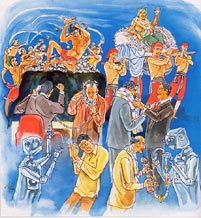 |
Verse 228. No One Is Exclusively Blamed Or Praised
Explanation: There was never a person who was wholly, totally |
 |
Verse 229. Person Who Is Always Praise-Worthy
Explanation: But those whom the wise praise, after a daily |
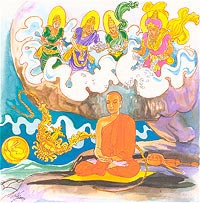 |
Verse 230. Person Who Is Like Solid Gold
Explanation: A person of distinction is beyond blame or praise |
Duties of the Buddhist Dhammacari
Dhammapada Verses 227, 228, 229 and 230
Atula Upasaka VatthuPoranametam Atula
netam ajjatanamiva
nindanti tunhimasinam
nindanti bahubhaninam
mitabhanimpi nindanti
natthi loke anindito.Na cahu na ca bhavissati
na cetarahi vijjati
ekantam nindito poso
ekantam va pasamsito.Yam ce vinnu pasamsanti
anuvicca suve suve
acchiddavuttim medhavim
pannasilasamahitam.Nikkham jambonadasseva1
ko tam ninditumarahati
devapi nam pasamsanti
brahmunapi pasamsito.Verse 227: It is not new, O Atula! It has always been done from ancient
times. They blame one who is silent, they blame one who speaks much, they blame
one who speaks little. There is no one in this world who is not blamed.Verse 228: There never has been, there never will be, nor is there now,
anyone who is always blamed or always praised.Verses 229 - 230: If the wise praise him day after day, knowing him to be
truly faultless, wise and endowed with knowledge and virtue, who would blame
him, who is like a nikkha of pure gold? The devas praise him; he is praised even
by the great Brahmas.
1. nikkham jambonadasseva: like a nikkha of jambonada gold. Jambonada gold
which comes from Jambu river is the finest gold. A nikkha can be a weight-unit
of gold, an ornament or a coin.
The Story of Atula the Lay-disciple
While residing at the Jetavana monastery, the Buddha uttered Verses (227) to
(230) of this book, with reference to Atula and his companions.Once, Atula and his companions numbering five hundred, wishing to listen to
words of dhamma, went to Thera Revata. The thera however was very aloof like a
lion; he did not say anything to them. They were very much dissatisfied and so
they went to Thera Sariputta. When Thera Sariputta learned why they had come, he
expounded exhaustively on the Abhidhamma. He also was not to their liking, and
they grumbled that Thera Sariputta had been too lengthy and too profound. Next,
Atula and his party approached Thera Ananda. Thera Ananda expounded to them the
bare essentials of the Dhamma. This time, they remarked that Thera Ananda had
been too brief and too sketchy. Finally they came to the Buddha and said to him,
“Venerable Sir, we have come to listen to your teaching. We have been to
other teachers before we come here, but we are not satisfied with any of them.
Thera Revata did not bother to teach us and he just kept silent; Thera Sariputta
was too exhaustive and the Dhamma he taught us was too difficult for us. As for
Thera Ananda, he was too brief and too sketchy. We do not like any of their
discourses.”To them the Buddha said, “My disciples, blaming others is not
something new. There is no one in this world who is never blamed; people would
blame even a king, or even a Buddha. To be blamed or to be praised by a fool is
of no consequence; one is truly blamed only when he is blamed by a wise man, and
truly praised only when praised by a wise man.”Then the Buddha spoke in verse as follows:
Verse 227: It is not new, O Atula! It has always
been done from ancient times. They blame one who is silent, they blame
one who speaks much, they blame one who speaks little. There is no one
in this world who is not blamed.Verse 228: There never has been, there never will
be, nor is there now, anyone who is always blamed or always praised.Verses 229 - 230: If the wise praise him day after
day, knowing him to be truly faultless, wise and endowed with
knowledge and virtue, who would blame him, who is like a nikkha of
pure gold? The devas praise him; he is praised even by the great
Brahmas.
At the end of the discourse Atula and his companions attained Sotapatti
Fruition.
The Karaniya Metta Sutta
the Buddha’s discourse on Loving Kindness
1
Karaniyam atthakusalena
Yan tam santam padam abhisamecca
Sakko uju ca suju ca
Suvaco c’assa mudu anatimani
This is what should be done
By one who is skilled in goodness
Having glimpsed the state of perfect peace,
Let them be able, honest and upright,
Gentle in speech, meek and not proud.
2
Santussako ca subharo ca
Appakicco ca sallahukavutti
Santindriyo ca nipako ca
Appagabbho kulesu ananugiddho
Contented and easy to support,
With few duties, and simple in living.
Tranquil their senses, masterful and modest, without greed for supporters
3
Na ca khuddam samacare kinci
Yena viññu pare upavadeyyum
Sukhino va khemino hontu
Sabbe satta bhavantu sukhitatta
Also, let them not do the slightest thing
That the wise would later reprove.
Let them cultivate the thought:
May all be well and secure,
May all beings be happy
4
Ye keci panabhut’atthi
Tasa va thavara va anavasesa
Digha va ye mahanta va
Majjhima rassakanukathula
Whatever living creatures there be,
Without exception, weak or strong,
Long, huge or middle-sized,
Or short, minute or bulky,
5
Dittha va yeva adittha
Ye ca dure vasanti avidure
Bhuta va sambhavesi va
Sabbe satta bhavantu sukhitatta
Whether visible or invisible,
And those living far or near,
The born and those seeking birth,
May all beings be happy
6
Na paro param nikubbetha
Natimaññetha katthacinam kanci
Byarosana patighasañña
Naññamaññassa dukkham iccheyya
Let none deceive another
Or despise any being in any state;
Let none wish others harm
In resentment or in hate.
7
Mata yatha niyam puttam
Ayusa ekaputtam anurakkhe
Evampi sabbabhutesu
Manasam bhavaye aparimanam
Just as with her own life
A mother shields her child,
her only child, from hurt
Let all-embracing thoughts
For all beings be yours.
8
Mettañ ca sabba-lokasmim
Manasam bhavaye aparimanam
Uddham adho ca tiriyanca
Asambadham averam asapattam
Cultivate a limitless heart of goodwill
For all throughout the cosmos,
In all its height, depth and breadth –
Love that is untroubled
And beyond hatred or enmity.
9
Titthañ caram nisinno va
Sayano va yavat’assa vigatamiddho
Etam satim adhittheyya
Brahmam etam viharam idhamahu
As you stand, walk, sit or lie,
So long as you are awake,
Pursue this awareness with your might:
It is deemed the Divine Abiding- here and now.
10
Ditthiñca anupagamma silava
Dassanena sampanno
Kamesu vineyya gedham
Na hi jatu gabbhaseyyam punar eti’ti
Holding no more to wrong views,
A pure-hearted one, having clarity
of vision, being freed from all sense desires,
Is not born again into this world.

Karanīya Metta Sutta
This important sutta from the Pāli
canon describes the Buddhist path in terms of loving kindness or mettā
(Sanskrit: maitrī मैत्री). It is found in the Sutta Nipāta which is
considered to be amongst the earliest layers of the composition of the
canon. Also known as simply the Metta Sutta, although there is another text with that name, the Karanīya Metta Sutta
is one of the best known paritta texts which were and still are chanted
for protection against harm. The Pāli commentary records that it was
taught to a group of bhikkhus who were having problems with tree devas.
The Pāli text comes from the Pāli text society edited version.
See also my other Karanīya Mettā Sutta translation, and my translation of an exert from Buddhagosa’s Pāli commentary which tells the story of how the Mettā Sutta came about.
Pāli text in Siddhaṃ script

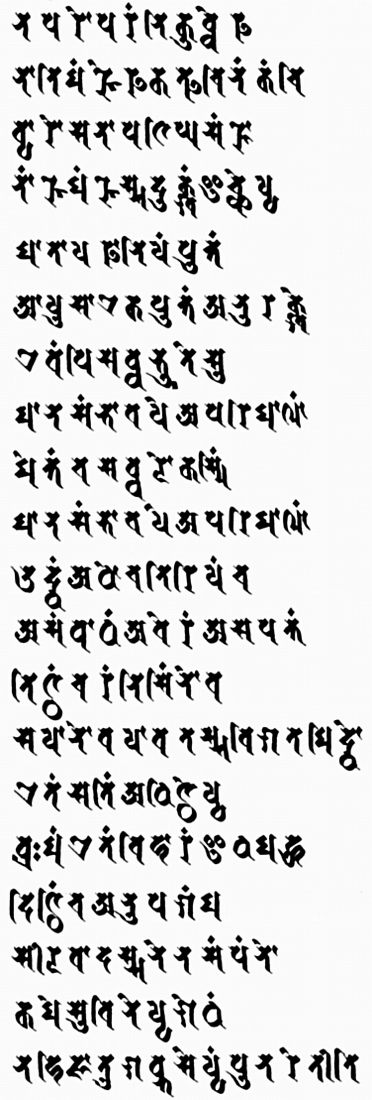
Pāli text in roman script
Karanīyam atthakusalena
yan taṃ santaṃ padaṃ abhisamecca:
Sakko ujū ca sūjū ca
suvaco c’assa mudu anatimānī,
Santussako ca subharo ca
appakicco ca sallahukavutti
Santidriyo ca nipako ca
appagabbho kulesu ananugiddho,
Na ca khuddaṃ samācare kiñci
yena viññū pare upavadeyyuṃ
Sukhino vā khemino hontu
sabbe sattā bhavantu sukhitattā:
Ye keci pāṇabhūt’ atthi
tasā vā thāvarā vā anavasesā
Dīgha vā ye mahantā vā
majjhimā rassakā aṇukathūlā
Diṭṭhā vā ye vā addiṭṭhā
ye ca dūre vasanti avidūre
Bhūtā vā sambhavesī vā
sabbe sattā bhavantu sukhitattā
Na paro paraṃ nikubbetha
nâtimaññetha katthacinaṃ kañci
Vyārosanā paṭighasaññā
nāññamaññassa dukkham iccheyya
Mātā yathā niyaṃ puttaṃ
āyusā ekaputtam anurakkhe
Evam pi sabbabhūtesu
mānasam bhāvaye aparimāṇaṃ
Mettañ ca sabbalokasmiṃ
mānasam bhāvaye aparimāṇaṃ
Uddhaṃ adho ca tiriyañ ca
asambādhaṃ averaṃ asapattaṃ
Tiṭṭhaṃ caraṃ nisinno vā
sayāno vā yāvat’ assa vigatamiddho
Etaṃ satiṃ adhiṭṭheyya
brahmam etaṃ vihāraṃ idha-m-ahu
Diṭṭiñ ca anupagamma
sīlavā dassanena sampanno
Kāmesu vineyya gedhaṃ
na hi jātu gabbhaseyyaṃ punar etī ti
English Translation
(This is a fairly literal translation by Jayarava)
This is what ought to be done by one skilled in the good
Having understood the path to peace
Able, straight forward and straight up,
polite, they should be mild and not arrogant
Contented and frugal,
with few responsibilities and easy going,
grounded, and not impulsive;
not chasing status
And not doing the slightest thing
which is denounced by the Wise in others
May they have happiness and peace;
May all beings be happy in themselves
Whatever living beings there are
fearful or fearless – without remainder
Huge, large,
medium, small. Fine or coarse.
Seen or unseen,
Remote or living nearby,
Born or seeking birth:
May all beings be happy in themselves
Not humiliating,or despising
anyone anywhere
Though anger or experiencing repugnance:
[they] should not wish suffering for another.
Like a mother’s own child,
[she will] protect that only child with her life
Thus for all beings should
the heart become infinite
And friendliness for all the world,
[should] the heart become infinite
In all the directions of space,
unobstructed, peaceable, without enmity
Standing, walking, sitting
or lying down, As far as possible without sluggishness
This mindfulness should be undertaken;
[It is like] dwelling with god here and now
Not falling into views,
ethical and with perfect vision
Having given up greed for sensory pleasures,
freed without doubt from birth.
Notes
Siddhaṃ is a fine script for writing Pāli although it would not have
been traditional to do so. Siddhaṃ was developed for writing Sanskrit,
but the two languages are so similar that it presents few difficulties.
Pāli was in fact recorded mainly in the Sinhala script in Sri Lanka and
the Burmese Script in Burma - both of which also derive ultimately from
Brahmi.
It’s not often commented on but this “sutta” does not begin “evaṃ me
sutaṃ” - thus have I heard - and does not finish with a response from
the audience which are the two main criteria for a sutta. I suppose it
is really an example of a gatha or verse.
Karaniyametta sutta
http://www.youtube.com/watch?v=Nm110MOejgg
Karaniyametta sutta
11 KARANIYAMETTA SUTTA
http://www.youtube.com/watch?v=xwP6Gb4GxAs
Karaniyametta Sutta
http://www.youtube.com/watch?v=lZBlHUL434o
Karaniya Metta Sutta - Buddhism
http://www.youtube.com/watch?v=AXw6U58mYnE
[Audio] Karaniyametta Sutta
http://www.youtube.com/watch?v=YOlXd-WVNwo
Karaniya Metta Sutta
http://www.youtube.com/watch?v=Tjn8OlcfPXI
Karaniyametta sutta
Indiana Buddhist Temple Karaniya Metta Sutta
http://www.youtube.com/watch?v=GYfn3qvtMpQ
Karaniyametta sutta
karaniyametta Sutta 巴利文慈愛經 Chant By Rev Jandure Pagngnananda Thero釋明高
http://www.youtube.com/watch?v=s1vMNXBkGmU
Karaniya Metta Sutta
http://www.youtube.com/watch?v=bNvuxP7QmaU
Karaniya Metta Sutta by Mithun.wmv
http://www.youtube.com/watch?v=KtF4LR8MFss
Karaniya Metta Sutta
Buddhism for Children-Please Visit:
http://woodlands-junior.kent.http://www.bgfl.org/bgfl/custom/resources_ftp/client_ftp/ks1/re/teddys_day_out/index.htm
for
Teddy’s Day Out - An Interactive Game for Kids
Help Teddy to find the Buddhists symbols.
http://www.buddhanet.net/e-learning/buddhism/storybuddha.htm
for
 |
||||
 |
 |
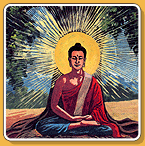 |
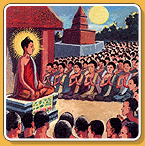 |
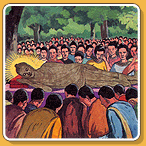 |
| |
|
|
|
|
| |
||||
http://www.thegrid.org.uk/archive_site/learning/re/pupil/buddhisttrail/index.html
for
Buddhist Monastery Virtual Tour - Hertfordshire Grid for Learning
A virtual tour of Amaravati Buddhist Monastery in Hertfordshire.
Pupil resources
Tour of Amaravati Buddhist Monastery, Great Gaddesden, near Hemel Hempstead
|
|||||||||||||||||||||||||||||||||||||||||||||||||||||||||||||||||||||||||||||||||||||||||||||||||||||||||||||||||||||||||||||||||||||||||||||||||||||||||||||||||||||||||||||||||||||||||||||||||||
|
Alternatively, start the tour from the |
|||||||||||||||||||||||||||||||||||||||||||||||||||||||||||||||||||||||||||||||||||||||||||||||||||||||||||||||||||||||||||||||||||||||||||||||||||||||||||||||||||||||||||||||||||||||||||||||||||
for
Buddhism
For children
Buddhism: Introduction
| _ | _ | ||
| Introduction Central Belief Buddha Tipitaka Theravada Mahayana The Eightfold Path Nirvana Soul |
Introduction
Buddhism began in |
http://www.thailandlife.com/thai-buddhist/index.php
Life as a Buddhist
Written by a Thai Teenager
Also take a look at www.thaibuddhist.com
http://www.buddhapadipa.org/
for
Daily Dhamma
Wholesome concentration
Wholesome concentration is concentration free of greed, hatred and delusion. It is free of the five hinderences.
Dhamma Archive
Temple Gallery
http://www.sheknows.com/parenting/articles/964945/teaching-your-kids-about-independence-day
for
Teaching your kids about Independence Day

Kids love Independence Day with all the fireworks, picnics, fun and
games. In addition to all the festivities, it’s also important for
parents to teach their kids about the history and meaning of
Independence Day.
The meaning of Independence Day
Brush up on your American history
Before you start talking to your kids about Independence Day, brush
up on your history. Considered America’s birthday, Independence Day
marks the anniversary of the day the Declaration of Independence was
adopted by the Continental Congress — July 4, 1776. That means that
this year — 2012 — marks the America’s 236th birthday. The first
Independence Day wasn’t celebrated on the 4th of July but rather four
days later on July 8, 1776 in Philadelphia.
So did our Founding Fathers plan on Independence Day becoming such a
big celebration? Well at least one of them did. John Adams said of
Independence Day, “I am apt to believe that it will be celebrated by
succeeding generations as the great anniversary festival. It ought to be
commemorated as the day of deliverance, by solemn acts of devotion to
God Almighty. It ought to be solemnized with pomp and parade, with
shows, games, sports, guns, bells, bonfires, and illuminations, from one
end of this continent to the other, from this time forward for
evermore.”
Check out these Fourth of July activities for kids >>
Ask your kids what they know
Maybe your kids know more about Independence Day than you think. They
may have already learned in school about why we celebrate on 4th of
July. Ask them about the meaning of Independence Day and help them fill
in the blanks. Talk about the Boston Tea Party and why it happened (the
colonies were opposing taxation by England and King George II without
representation). Discuss the Revolutionary War, the First Continental
Congress and the Declaration of Independence.
Quiz your kids about the important figures of the time including
Samuel Adams, Benjamin Franklin, John Hancock, Patrick Henry, Thomas
Jefferson, Paul Revere and George Washington. TheAmericanRevolution.org
has a great list of the important people of the American Revolution and
plenty of other information about this time period. On Independence
Day, read to your kids from books about the American Revolution. Also
read popular Independence Day quotes and poems together.
Teach them about the flag
Young kids can learn about Independence Day by coloring the different
patriotic symbols such as the American flag, the Liberty Bell, Uncle
Sam and more. Print coloring pages and other printables for Independence Day.
Make this Fourth of July flag lasagna recipe >>
Read the Declaration of Independence
With older kids, read the Declaration of Independence
together and talk about what it means. Create a special declaration for
your own family — a set of rules, standards and ideals to live by.
Print it out and have everyone in the family sign it.
Learn and sing patriotic songs
Teach your kids the words to the national anthem — “The Star
Spangled Banner” — and sing it together. Other patriotic songs that are
suitable for Independence Day include “America the Beautiful,” “God
Bless America,” “I’m a Yankee Doodle Dandy,” “This Land is Your Land”
and “You’re a Grand Old Flag.”
Watch movies about Independence Day
On 4th of July, sit down with your kids and watch a movie about Independence Day — and we don’t mean the Will Smith movie of the same name. The Patriot, 1776, Revolution, Drums Along the Mohawk and Last of the Mohicans are great choices. For little ones, Ben and Me is an appropriate option.
Read about these ways to make family movie night fun >>
Take a trip to a historical landmark
If you are fortunate enough to live near one of country’s great
historical landmarks, plan a visit — even if not on Independence Day.
Don’t live close by? Don’t worry, you can take a virtual trip online.
The internet offers pictures, videos and information about a variety of
historical landmarks and places from the Revolutionary War. This offers a
terrific opportunity to teach young kids about how to research on the
internet. Learn about the freedoms we were fighting for and what life
was like before the American Revolution.
Even when teaching your kids about the historical aspects of
Independence Day, keep things light-hearted and fun. In addition to all
the learning activities, create 4th of July crafts, sample red, white and blue foods and play Fourth of July games on Independence Day.
More about Fourth of July
4th of July pop star cookie pops
Patriotic stenciled tees (with free templates!)
4th of July activities with families
http://www.usacitylink.com/usa/independence-day/
Independence Day July 4th
On July 4, 1776, we claimed our independence from Britain and Democracy was born. Every day thousands leave their homeland to come to the “land of the free and the home of the brave” so they can begin their American Dream.
The United States is truly a diverse nation made up of dynamic people. Each year on July 4, Americans celebrate that freedom and independence with barbecues, picnics, and family gatherings. Through the Internet we are learning about and communicating with people of different nations, with different languages and different races throughout the world. Bringing the world closer with understanding and knowledge can only benefit all nations.
We invite all nations to celebrate with Americans online this Fourth of July.
Happy Birthday, America!
“I pledge allegiance to the flag of the United States of America, and to the Republic for which it stands. One nation under God, indivisible, with liberty and justice for all.”
“The Star Spangled Banner”
The Defense of Fort McHenry by Francis Scott Key 20 September 1814
Oh, say can you see, by the dawn’s early light, What so proudly we hailed at the twilight’s last gleaming? Whose broad stripes and bright stars, through the perilous fight, O’er the ramparts we watched, were so gallantly streaming? And the rockets’ red glare, the bombs bursting in air, Gave proof through the night that our flag was still there. O say, does that star-spangled banner yet wave O’er the land of the free and the home of the brave?
On the shore, dimly seen through the mists of the deep, Where the foe’s haughty host in dread silence reposes, What is that which the breeze, o’er the towering steep, As it fitfully blows, now conceals, now discloses? Now it catches the gleam of the morning’s first beam, In full glory reflected now shines on the stream: ‘Tis the star-spangled banner! O long may it wave O’er the land of the free and the home of the brave.
And where is that band who so vauntingly swore That the havoc of war and the battle’s confusion A home and a country should leave us no more? Their blood has wiped out their foul footstep’s pollution. No refuge could save the hireling and slave From the terror of flight, or the gloom of the grave: And the star-spangled banner in triumph doth wave O’er the land of the free and the home of the brave.
Oh! thus be it ever, when freemen shall stand Between their loved homes and the war’s desolation! Blest with victory and peace, may the heaven-rescued land Praise the Power that hath made and preserved us a nation. Then conquer we must, for our cause it is just, And this be our motto: “In God is our trust.” And the star-spangled banner forever shall wave O’er the land of the free and the home of the brave!
New York Buddhist Vihara
214-22 Spencer Avenue, Queens Village, NY 11427-1821
































